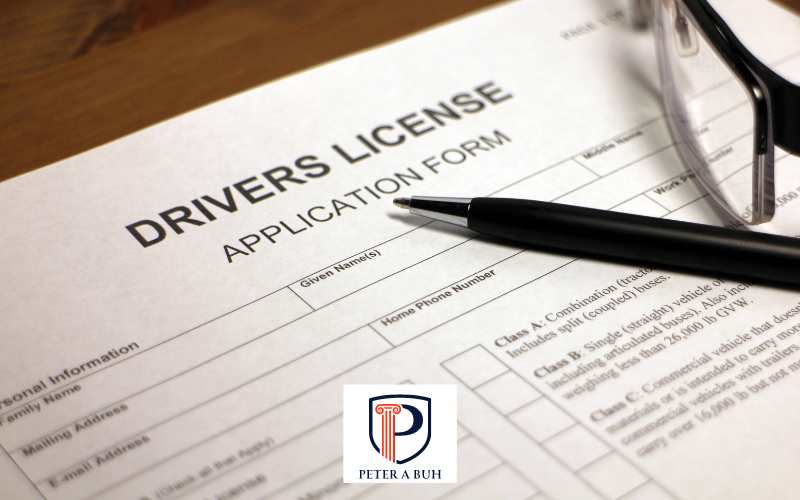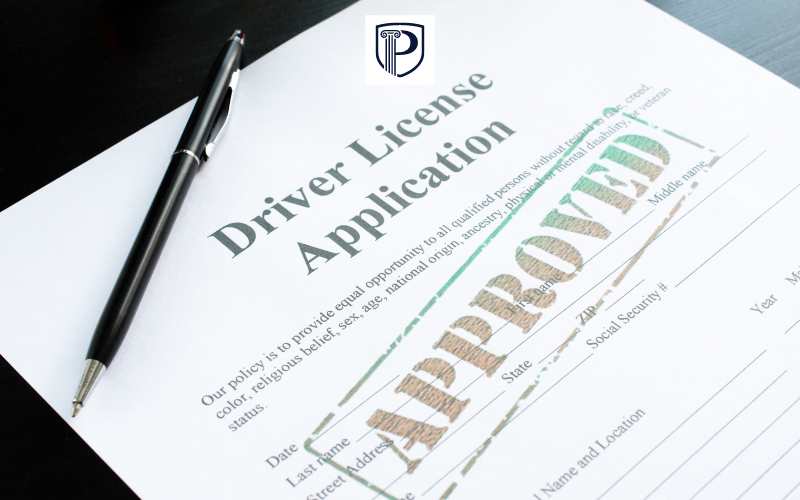Navigating the complexities of a suspended or revoked driver’s license in Illinois can be a daunting and stressful experience. Whether your license was suspended due to traffic violations, DUI charges, or other infractions, the process of reinstating your driving privileges requires careful navigation of legal procedures and requirements. In such challenging times, having the guidance and support of an experienced Illinois License Reinstatement Attorney can make all the difference.
With our knowledge of state laws and regulations, our team focuses on helping individuals regain their driving privileges and move forward with their lives. In this content, we’ll explore the role of an Illinois License reinstatement attorney and how they can assist you in overcoming the hurdles associated with a suspended or revoked driver’s license.
If you are having issues with a suspended or revoked license we can help! Call our Illinois traffic law firm at 708-274-4499 to get your case started.
License Suspension vs. Revocation
Driver’s license suspension and revocation are serious consequences that can significantly impact your ability to drive legally in Illinois. While both terms refer to the loss of driving privileges, there are important differences between them.
A driver’s license suspension is a temporary loss of driving privileges for a specific period of time. It may be imposed for various reasons, such as accumulating too many traffic violations, failing to pay fines or appear in court, or driving under the influence (DUI) of drugs or alcohol. During the period of suspension, you are not allowed to drive, but you may be eligible to have your license reinstated once you fulfill certain requirements, such as paying fines, completing a defensive driving course, or serving a suspension period.
On the other hand, a driver’s license revocation is a more severe penalty that involves the permanent cancellation of your driving privileges. Revocation is typically imposed for more serious offenses, such as multiple DUI convictions, vehicular manslaughter, or reckless driving resulting in injury or death. Unlike suspension, revocation is not time-limited, and you must go through a formal process to apply for reinstatement of your license, which may include attending a hearing and demonstrating that you meet certain criteria for reinstatement.
It’s essential to understand the distinction between suspension and revocation, as the consequences and procedures for each can vary significantly. If you’re facing a suspension or revocation of your driver’s license in Illinois, it’s crucial to seek legal advice from an experienced attorney who can explain your rights, options, and potential consequences. With the right guidance and representation, you may be able to navigate the process more effectively and work towards reinstating your driving privileges.
Offenses Leading to Driver’s License Suspension or Revocation
Driver’s license suspension or revocation in Illinois can result from various traffic offenses and violations of state laws. These penalties are imposed to ensure public safety and deter reckless or irresponsible driving behavior. Here are some common offenses that can lead to driver’s license suspension or revocation:
- Driving Under the Influence (DUI): Operating a vehicle while impaired by alcohol or drugs is a serious offense that can result in immediate suspension or revocation of your driver’s license. Illinois has strict DUI laws, and penalties may vary depending on factors such as blood alcohol content (BAC) levels and previous offenses.
- Excessive Traffic Violations: Accumulating too many traffic tickets or citations within a certain period can lead to license suspension. Common violations include speeding, reckless driving, running red lights or stop signs, and failure to yield.
- Driving Without Insurance: Illinois law requires all drivers to carry auto insurance. If you’re caught driving without insurance or fail to provide proof of insurance when requested by law enforcement, your license may be suspended.
- Failure to Pay Fines or Appear in Court: If you fail to pay traffic fines or appear in court for a traffic violation, the court may issue a suspension of your driver’s license until you resolve the outstanding issues.
- Driving While Suspended or Revoked: Operating a vehicle while your license is already suspended or revoked is a serious offense that can lead to extended suspension periods, increased fines, and even criminal charges.
- Serious Traffic Offenses: Certain serious traffic offenses, such as vehicular manslaughter, fleeing the scene of an accident, or drag racing, may result in immediate license suspension or revocation.
- Drug Offenses: Conviction for drug-related offenses, especially those involving motor vehicles, can lead to license suspension or revocation.

Understanding the offenses that can lead to driver’s license suspension or revocation is essential for all motorists. If you’re facing suspension or revocation, it’s crucial to seek legal advice to understand your rights, options, and potential consequences. An experienced attorney can help you navigate the process and work towards reinstating your driving privileges.
What Happens if You Are Caught Driving on a Suspended License
Driving on a suspended license in Illinois is a serious offense that can lead to severe consequences. If you are caught driving with a suspended license, you could face legal penalties, including fines, additional license suspension or revocation, and even imprisonment.
In Illinois, driving on a suspended license is typically considered a misdemeanor offense. However, if your license was suspended due to a DUI conviction or reckless driving, the consequences could be more severe. Additionally, if you cause an accident while driving on a suspended license, you may face enhanced penalties.
If you are caught driving with a suspended license, it is essential to take the situation seriously and seek legal assistance as soon as possible. An experienced attorney can help you understand your rights, navigate the legal process, and work towards minimizing the potential consequences. They may be able to negotiate with prosecutors to reduce the charges or explore other legal options to protect your rights and interests.
The Driver’s License Reinstatement Hearing Process in Illinois
In Illinois, having your driver’s license reinstated after it has been suspended or revoked involves a detailed legal process. This procedure typically varies depending on the reason for the suspension or revocation and may involve several steps to complete.
Firstly, it’s crucial to understand why your license was suspended or revoked in the first place. Common reasons for license suspension or revocation in Illinois include DUI convictions, multiple traffic violations, failure to pay fines or appear in court, and failure to maintain auto insurance.
Once you are aware of the reason for your license suspension or revocation, you can begin the process of reinstatement. This often involves fulfilling specific requirements set forth by the Illinois Secretary of State’s office. These requirements may include completing a driver’s education program, paying fines or fees, providing proof of insurance, and, in some cases, attending a license reinstatement hearing.
After meeting the requirements, you can submit an application for license reinstatement to the Illinois Secretary of State’s office. Depending on the circumstances, you may need to appear for an administrative hearing to plead your case for reinstatement.
During the hearing, you will have the opportunity to present evidence and arguments supporting your request for reinstatement. This may include demonstrating completion of required programs, proof of compliance with court orders, and evidence of rehabilitation, particularly in cases involving DUI convictions.
Following the hearing, the Secretary of State’s office will review your case and determine whether to reinstate your driver’s license. If reinstatement is granted, you may need to pay additional fees and undergo any further requirements specified by the office.
How Long Does It Take To Reinstate a License in Illinois?
Reinstating a driver’s license in Illinois can vary in duration depending on several factors. The timeline primarily hinges on the reason for the license suspension or revocation and the specific requirements mandated by the Illinois Secretary of State’s office.
For instance, if the license was suspended due to a DUI conviction, the reinstatement process might involve completing a drug or alcohol evaluation, attending DUI classes, and installing an ignition interlock device in the vehicle. Additionally, fines or license reinstatement fees associated with the conviction must be settled.

In other cases, such as license suspension due to traffic violations or failure to maintain auto insurance, the reinstatement process may be less complex. However, the duration can still be influenced by the time it takes to fulfill any outstanding requirements and complete the necessary paperwork.
Furthermore, the involvement of administrative hearings or legal proceedings can prolong the reinstatement process. These hearings may be required to plead the case for reinstatement, particularly in instances involving DUI convictions.
Overall, the duration to reinstate a license in Illinois can vary widely based on individual circumstances. It’s essential to carefully follow the procedures outlined by the Secretary of State’s office and address any outstanding requirements promptly to expedite the process. Seeking guidance from a knowledgeable attorney who prioritizes in license reinstatement cases can also help navigate the process efficiently.
What is a Restricted Driving Permit?
A Restricted Driving Permit (RDP) in Illinois is a special license that allows individuals with a suspended or revoked driver’s license to drive under certain circumstances. Essentially, it’s a temporary lifeline for those who need to drive for essential purposes despite their license status. The Illinois Secretary of State’s Office issues RDPs, and they come with specific restrictions and conditions that must be followed diligently.
To qualify for an RDP in Illinois, individuals must meet certain eligibility criteria set forth by state law. These criteria typically include demonstrating a genuine need for driving privileges, completing a required drug or alcohol treatment program, and complying with all court-ordered conditions related to their license suspension or revocation. Additionally, applicants must provide proof of financial responsibility, such as auto insurance, and may be required to install an ignition interlock device (IID) in their vehicles, especially if their license suspension or revocation is DUI-related.
It’s crucial to understand that an RDP doesn’t grant unrestricted driving privileges. Instead, it allows individuals to drive for specific purposes, such as commuting to work, attending medical appointments, or fulfilling other essential responsibilities outlined in the permit. Violating the terms of the RDP or committing additional traffic offenses while driving under it can lead to severe consequences and may hinder the individual’s ability to regain full driving privileges in the future.
How Our Illinois License Reinstatement Attorney Can Help You
Navigating the process of reinstating your driver’s license in Illinois can be complex and daunting, especially if you’re unfamiliar with the legal procedures involved. That’s where our Illinois license restoration attorney steps in to assist you. With years of extensive experience and a deep understanding of Illinois traffic laws, our license hearing attorneys are dedicated to helping individuals like you regain their driving privileges and move forward with confidence.
First and foremost, our attorney will assess your unique situation and determine the most effective strategy for reinstating your license. Whether you’re facing a suspension due to DUI-related offenses, traffic violations, or other reasons, we’ll guide you through the necessary steps to address your specific circumstances. Our attorney will also provide invaluable legal advice and support throughout the reinstatement process.
Our law firm works to minimize the impact of license suspension or revocation on our clients and help them regain their freedom to drive legally. With our dedicated legal representation, you can trust that your case is in capable hands, and we’ll do everything possible to help you get back on the road safely and responsibly.
